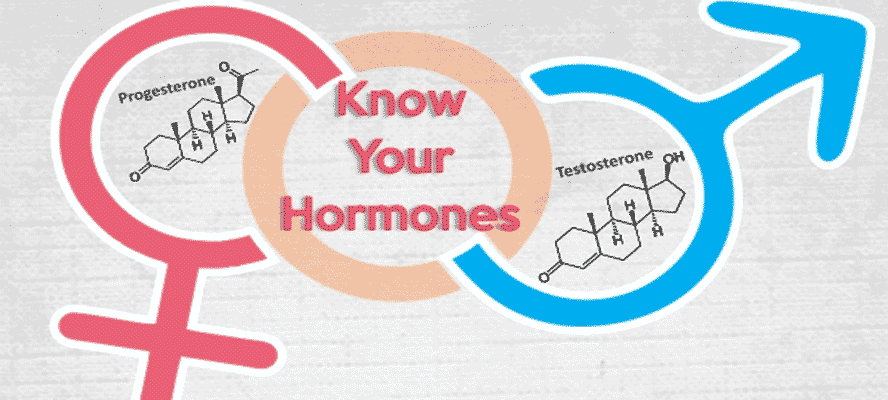Tiredness, restlessness, drows iness, hunger, Depression, sorrow, happiness, etc…
Have you ever thought why you go through all these emotions in your day to day life?
What in the body provokes these emotions and feelings? How do you realize that you are hungry
or angry? Don’t you think there are messengers that coordinate for this
Well yes, they are the chemical messengers called – Hormones.
Hormones and body The word hormone is originated from Greek word “hormao” which means to excite or to stimulate. hormones are unique chemical messengers secreted by the endocrine glands into the bloodstream. These messengers are the tools to control and coordinate activities throughout the body .
All hormones possess different chemical nature, site of production and release as well as differ in the effects they exert. Several important functions such as metabolism, growth, reproduction and sexual differentiation, maintenance of internal environment are regulated by hormones. Just like traffic signals, hormones instruct our body what to do and when to do, so that body functions smoothly and efficiently.
Reproductive hormones Sex hormones such as male and female hormones play important roles in development during different stages of life such as puberty, menopause, pregnancy, regulating cycles, etc.
Male Hormones
Male hormones are responsible for development of male characteristics and reproductive system.
Androgen
It is a sex hormone responsible for the male features, reproduction and sexual development.
This hormone is produced by the testicles and is also found in women, produced in lower
quantities by the ovaries. It mainly plays a role in puberty. Androgens carry out functions in
testes formation, spermatogenesis, inhibition of fat deposition. Types of androgen includes
Dihydrotestosterone an androgen steroid hormones that is synthesized from testosterone. It stimulates develop ment of male characteristics, especially the external male genitalia. Deficiency of this hormone during embryogenesis may shrink male genitalia, leading such neonates to be considered female. It also thought to cause hair follicles to miniaturize, contributing to male pattern hair loss.
Testosterone hormone helps form male sex organs before birth and development of male reproductive tissues like testis and prostate , secondary sex characteristics such as growth of facial, pubic and body hair, stimulating muscle growth and bone mass deepening of voice etc. after the onset puberty.
Androsterone is a weak steroid male sex hormone, produced in the liver from the metabolism of testosterone. It is responsible for the development of masculine characteristics,
LH (LH) and FSH (FSH) LH and FSH produced by the pituitary glands act on the testes where FSH stimulates the sertoli cells to begin spermatogenesis and LH stimulates leydig cells to produce testosterone.
Female Hormones
Female hormones are responsible for women’s reproductive health.
progesterone This sex hormone is produced in ovaries, placenta, and adrenal glands in the body. It plays a major role in menstrual cycle, pregnancy and embryo formation. It helps to function in regulating the condition of endometrium (inner lining) of uterus preparing it to nourish an implanted fertilized egg. During pregnancy, progesterone hormone also stimulates glands in the breast for milk production.
estrogen This sex hormone is produced in ovaries, adrenal gland and fat tissues. It is produced in greater quantity in women during menarche (onset of menstrual cycle) and menopause (ceasing of menstruation). It majorly functions to develop female reproductive system and secondary sexual characteristics. It stimulates endometrium growth during menstruation, uterine growth, improves lubrication of vagina and vaginal wall thickness. It also helps in bone formation, protein synthesis as well as increases cortisol and sex hormone binding globulin.
Luteinizing hormone (LH) and follicle stimulating hormone (FSH) LH is a hormone produced in the pituitary gland present in the base of the brain. LH plays an important role in both men and women. In females, LH works along with follicle stimulating hormones (FSH) that stimulates the ovarian follicle, causing an egg to grow. Sudden rise in LH triggers ovulation.
Effects of Hormonal Imbalances
Hormonal imbalance arise when there is disruption in normal levels and production of
hormones in the endocrine system. This disturbs various functions that includes metabolic
activities and weight, thyroid, sleep cycle, menstrual cycle and body’s response to stress.
Factors like unhealthy food habits, increased stress response, very high body fat percentage,
hidden toxins and ageing contributes to hormonal imbalances.
Be Aware Hormones are influential, a tiny amount of them can bring drastic changes to your body. Educating yourself about various hormones and their mechanism in the body can help to solve underlying problems. Lifestyle plays an important factor when health is concerned. Symptoms caused by hormonal imbalances can be fixed naturally by altering diet and lifestyle even before turning to medicines. Being aware is an empowering thing to do, as sharing knowledge and contributing to a radical society about practising hormonal self awareness is badly needed in our world.
Being YOURSELF is controlled by your hormones,thus, keep your hormones in CONTROL
Luteinizing hormone
What is Luteinizing Hormone (LH)
Luteinizing hormone (LH) is one of the hormones that control the human body’s
reproductive system. LH is produced and released by the gonadotrope cells in
the anterior region of the pea-shaped pituitary gland that is located at the base
of the brain. LH plays different roles in both males and females; in females, sudden
rise of LH triggers ovulation. LH in females also controls the length of the menstrual
cycle, prepares the uterus for implanting the fertilised egg, and is involved in the
production of estrogen and progesterone. In males, LH stimulates production of
testosterone.
Why should one test for LH
Examine pituitary disorders that can affect LH production.
Examine conditions associated with dysfunction of the ovaries and testicles.
Evaluate delayed and precocious (early) puberty in children.
Determine when a women is likely to be fertile.
Assist the diagnosis of chromosome abnormalities, such as Klinefelter syndrome
and syndrome.
Detect Thyroid disease, adrenal disease and autoimmune diseases.
The Ups and Downs (Abnormal Levels)
High levels of LH in women may indicate absence or dysfunction of ovaries, which may lead to menopause, polycystic ovary syndrome, etc. At times, these elevated levels can also interfere with ovulation and menstruation, which may contribute to infertility. High levels in males may indicate dysfunction of testicles. This could be due to mumps, chemotherapy, cancer, injury, etc.
Significance LH plays essential roles in ovulation and will help to sustain pregnancy after fertilisation. LH is a key hormone useful in the evaluation of male infertility. Testosterone, whose production and helps develop male characteristics, eg, deep voice, growth of facial hair, etc.
Testing @ HealthcareOnTime Thyrocare offers Luteinizing Hormone estimation as a part of ‘infertility testing for women‘ using advanced and sophisticated automated technologies based on the principles of chemiluminescent immunoassay (C.L.I.A) AT highly affordable rates.








